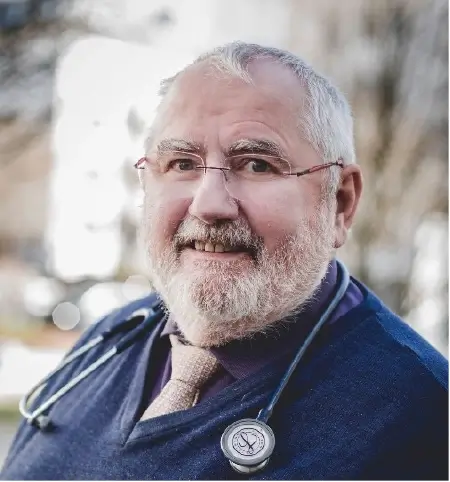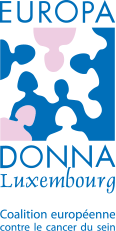Project 20 interviews
«Professionals speak about their daily work and their missions»
Interview with Dr Nico Haas, General Practitioner.
Dr. Nico Haas has been practicing his profession for 39 years. He is a general practitioner (GP), and it is thanks to his tenacity and perseverance, and that of his colleagues, the University of Luxembourg today offers specialised training in general medicine, neurology and cancer.
Dr Haas is a fervent believer in his profession, and points out that his job is very diverse. A general practitioner is the doctor that one sees frequently: whether he is treating the flu or prescribing tests, he takes overall care of his patients and ensures coordination with the necessary specialists.
Importantly, he investigates, and is faced with the question of uncertainty. He must not confuse different ailments with the same symptoms.
Dr Haas’ main role is preventive medicine, and Europa Donna Luxembourg wonders what his role is or could be in the management of patients suffering from cancer.
Of course, a GP is often involved in early diagnosis, since they may have prescribed additional examinations which have indicated that the patient is suffering from cancer. He refers his patient to the specialist in question, explains Dr Haas.
In the interests of the patient, it would be desirable if the GP were informed about the treatment of the patient by specialists such as oncologists, about the possible side effects of treatment and the patient’s healing process.
Unfortunately, specialists do not always automatically communicate information to the patient’s GP. And yet, it would be so much simpler if this were the case. Communication plays a key role in the whole process of the patient’s well-being.
Some enlightened specialists invite GPs to participate in multidisciplinary meetings so that they are up to date with everything that is happening to the patient.
As Dr Jodocy, an oncologist, has already pointed out in a previous interview, the general practitioner could monitor the patient’s state of recovery just as well, once the treatment has been completed, so that the patient does not need to keep going back to see his cancer specialist, which would in turn free up appointments for other patients.
However, in order to do this properly, the GP must be fully aware of the various treatment, drugs administered, the possible side effects, test results and the tumour markers present.

Dr. Nico Haas is convinced that a well-informed GP, who’s aware of the different stages of treatment, the various test results and the prognosis, can be the referral doctor after cancer treatment.
ED would like to appeal to the specialists to think about this and to do what is necessary for the exchange of data, and patient information to ensure the best possible follow-up by the GP and to free up slots in the specialists’ practices. The lack of timely transmission of information from hospitals or specialists is often a source of difficulty.
In France, the latest Cancer Plan emphasises the role of the GP following the initial cancer treatment (RF, Cancer Plan 2014-2019) and the importance of city-hospital coordination.
However, the GP must still be ready to accept this challenge.
Dr Haas, thank you very much for your commitment and your permanent fight for the well-being of patients.
The interview was conducted by Ms. Françoise Hetto-Gaasch, member of the committee of Europa Donna Luxembourg.
Europa Donna Luxembourg Asbl
1b rue Thomas Edison L-1445 Strassen
Tél.:621478394
E-mail : europadonna@pt.lu
www.europadonna.lu
